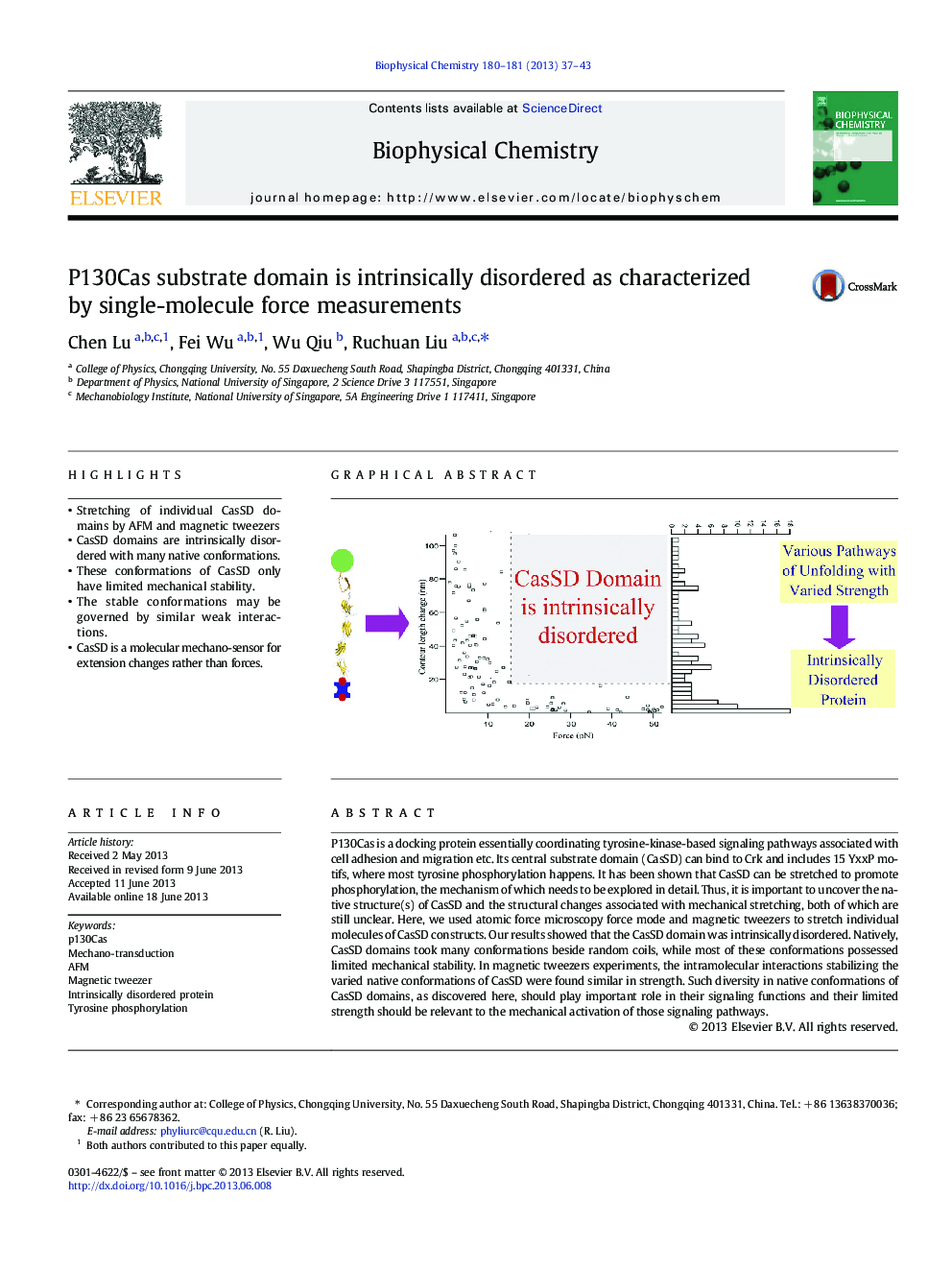| Article ID | Journal | Published Year | Pages | File Type |
|---|---|---|---|---|
| 5371085 | Biophysical Chemistry | 2013 | 7 Pages |
â¢Stretching of individual CasSD domains by AFM and magnetic tweezersâ¢CasSD domains are intrinsically disordered with many native conformations.â¢These conformations of CasSD only have limited mechanical stability.â¢The stable conformations may be governed by similar weak interactions.â¢CasSD is a molecular mechano-sensor for extension changes rather than forces.
P130Cas is a docking protein essentially coordinating tyrosine-kinase-based signaling pathways associated with cell adhesion and migration etc. Its central substrate domain (CasSD) can bind to Crk and includes 15 YxxP motifs, where most tyrosine phosphorylation happens. It has been shown that CasSD can be stretched to promote phosphorylation, the mechanism of which needs to be explored in detail. Thus, it is important to uncover the native structure(s) of CasSD and the structural changes associated with mechanical stretching, both of which are still unclear. Here, we used atomic force microscopy force mode and magnetic tweezers to stretch individual molecules of CasSD constructs. Our results showed that the CasSD domain was intrinsically disordered. Natively, CasSD domains took many conformations beside random coils, while most of these conformations possessed limited mechanical stability. In magnetic tweezers experiments, the intramolecular interactions stabilizing the varied native conformations of CasSD were found similar in strength. Such diversity in native conformations of CasSD domains, as discovered here, should play important role in their signaling functions and their limited strength should be relevant to the mechanical activation of those signaling pathways.
Graphical abstractDownload full-size image
